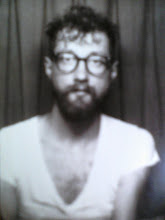
I've been reading and re-reading a book of letters written by Rainer Maria Rilke. In 1907 he went to Paris for a time (among other places) and wrote letters to his wife nearly every day.
These were compiled specifically for this publication because he talks at length about Cezanne. He also writes of Van Gogh and Rodin, but the insight surges strongest from his shared thoughts on the former. Apparently, the painter was a significant influence for Rilke's work. And Cezanne was a serious, devoted and strange man. Strange to most, I suppose. A stern and ridiculed personage. Children actually harassed him. They actually threw rocks at him. This is noteworthy to anyone nostalgic for a supposedly bygone era where great art was recognized and respected. There is always a generation of children ready to hurl stones.

Rilke went to a local pavillion day after day and spent a great deal of time with the Cezannes on display. This was nearly a year to the day after the old man died. The understanding of painting he displays in his writings to his wife is profound. Does anyone not involved with the brush and filth look at work like this? It was inspiring to know that an audience of such sincerity and brilliance could be there. So that it's not all stage tricks and vacillating between bloodthirsty devotion and flabby doubt.
The manner in which he corresponds with his wife makes me desire to hear them have a conversation. He writes of Cezzane attaining the sensitivity and discipline of a saint. Having done so one could possibly approach everything with love. Rilke exposes himself as one whom loves without celebrating himself for it. Birthing the ability to love and then cheaply touting it robs it of meaning.
And then there's Cezanne. He is compared to a dog more than once. Haggard, faithful. He was found unconscious in the road after getting caught in a rainstorm while he worked. He was dead some days later. He himself reportedly neglected to show up to his mother's funeral because he was "with the motiff." But that's just sensationalism, really. What he did, the manner in which he conducted his life around his work is in the work itself.
It's exciting to read about the relationship between two poets. I don't know if Cezanne were aware of Rilke or his work, but I've come back to Cezanne through an initial connection to Rilke. From there I look again at Matisse and Picasso, George Condo and Laura Owens. The rippling out of thought and creative acts. Pleas for sense linking one generation to the next. There is a disturbing level of numbness to the past among my peers.


No comments:
Post a Comment